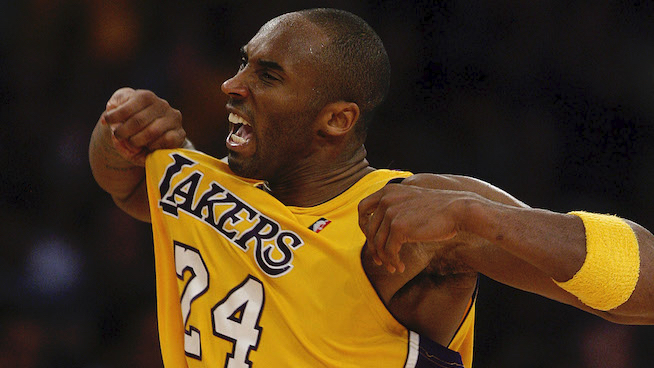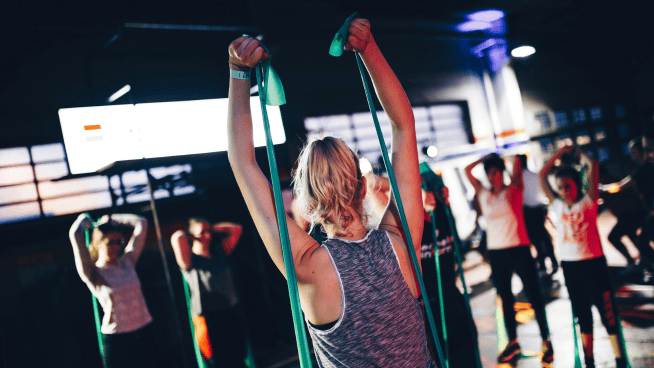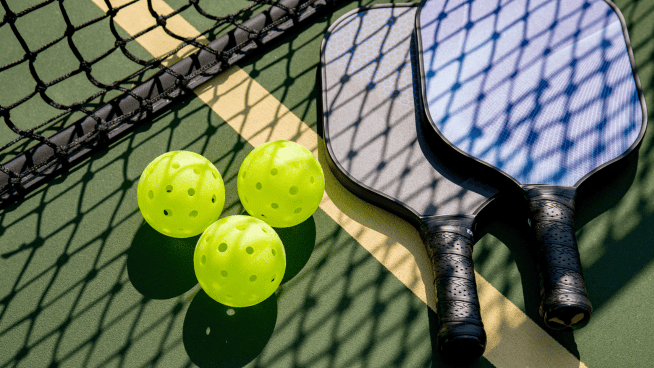The Missing Link In Your Athletic Training Program
Is your training focused exclusively on improving your strength, speed, agility and endurance? If so, you’re cheating yourself. Yes, those attributes are certainly important. But if you’re serious about performing at your peak, your current program is lacking. Physical training alone will not cut it.
When you’re competing against elite athletes, the differences are small between the best and the rest. Many athletes fall short not because of physical limitations, but because they lose confidence, get distracted or fail to recover from a mistake. Those who train strategically to build emotional and mental endurance fare much better in high-pressure situations.
The missing link in your training, therefore, is sport psychology. A strong mental game always gives you an edge.
Success is 90 percent mindset. Don’t leave your mental game to chance and rely on hope to stay focused in crunch time. Research shows that mental and emotional endurance affects sports performance.
Seven Top Reasons Why You Should Start A Sport Psychology Training Program
1. The one-two strategy. Don’t view your training program as an “either-or” proposition. Blend mental strategies in with your physical training. Prepare your mind as well as your body, and gain the confidence you need to compete and win.
2. Not all physically gifted athletes win. If something is too easy, you might not be building the skills to deal with adversity. Athletes who work through challenges become more resilient. Focus, discipline and strong performance under pressure form the foundation for success.
3. Staying focused under pressure. Buckling under pressure obviously affects performance. Successful athletes learn how to keep their eye on the prize, even under the most stressful conditions.
4. Does your coach really understand you? Coaches are experts at physical training. But some coaches don’t know how to motivate their athletes. And many do not really understand the value of sports psychology training.
5. Practice to compete. It’s easy to do well during practice. Controlled, consistent thoughts lead to controlled, consistent performance. Your thoughts affect your actions. Any type of mastery requires practice.
6. A new response to pressure. Athletes devote countless hours to improving technique. But when they choke, who helps them create a new response to pressure? Toughing it out is not the best strategy for dealing with anxiety.
7. It’s more than physical. It’s easy for coaches to talk about physical performance. But the challenges facing athletes often spring from mindset issues. How you perceive something affects your response. Figuring out confidence problems, learning how to catch up after a bad start, and controlling your emotions when you’re taunted are significant benefits of sports psychology training.
Mental training will make you more flexible, responsive and resilient—in sports and in life. Athletes who lack these qualities only go so far before negative thoughts creep in, causing disappointing results.
You don’t have to struggle with these issues. Get started immediately with mindset training strategies. The more you practice them, the more they will become second nature in high-pressure moments.
Many coaches and athletes believe performance is solely physical. That’s not true. Beliefs and emotions are misunderstood. Since thoughts and feelings aren’t visible, their importance gets minimized. Focused attention improves your performance. Sport psychology training teaches athletes how to stay cool when the heat is on.
A Challenge
Still not sure? Observe athletes you admire. Watch the ones who control their emotions under all conditions and compare them to athletes who allow their emotions to control them. Who’s your model? What does he or she do, and how can you imitate it? How will your new mindset change things for you? Check out the STACK Sports Psych page for techniques you can use to improve your mental game.
RECOMMENDED FOR YOU
MOST POPULAR
The Missing Link In Your Athletic Training Program
Is your training focused exclusively on improving your strength, speed, agility and endurance? If so, you’re cheating yourself. Yes, those attributes are certainly important. But if you’re serious about performing at your peak, your current program is lacking. Physical training alone will not cut it.
When you’re competing against elite athletes, the differences are small between the best and the rest. Many athletes fall short not because of physical limitations, but because they lose confidence, get distracted or fail to recover from a mistake. Those who train strategically to build emotional and mental endurance fare much better in high-pressure situations.
The missing link in your training, therefore, is sport psychology. A strong mental game always gives you an edge.
Success is 90 percent mindset. Don’t leave your mental game to chance and rely on hope to stay focused in crunch time. Research shows that mental and emotional endurance affects sports performance.
Seven Top Reasons Why You Should Start A Sport Psychology Training Program
1. The one-two strategy. Don’t view your training program as an “either-or” proposition. Blend mental strategies in with your physical training. Prepare your mind as well as your body, and gain the confidence you need to compete and win.
2. Not all physically gifted athletes win. If something is too easy, you might not be building the skills to deal with adversity. Athletes who work through challenges become more resilient. Focus, discipline and strong performance under pressure form the foundation for success.
3. Staying focused under pressure. Buckling under pressure obviously affects performance. Successful athletes learn how to keep their eye on the prize, even under the most stressful conditions.
4. Does your coach really understand you? Coaches are experts at physical training. But some coaches don’t know how to motivate their athletes. And many do not really understand the value of sports psychology training.
5. Practice to compete. It’s easy to do well during practice. Controlled, consistent thoughts lead to controlled, consistent performance. Your thoughts affect your actions. Any type of mastery requires practice.
6. A new response to pressure. Athletes devote countless hours to improving technique. But when they choke, who helps them create a new response to pressure? Toughing it out is not the best strategy for dealing with anxiety.
7. It’s more than physical. It’s easy for coaches to talk about physical performance. But the challenges facing athletes often spring from mindset issues. How you perceive something affects your response. Figuring out confidence problems, learning how to catch up after a bad start, and controlling your emotions when you’re taunted are significant benefits of sports psychology training.
Mental training will make you more flexible, responsive and resilient—in sports and in life. Athletes who lack these qualities only go so far before negative thoughts creep in, causing disappointing results.
You don’t have to struggle with these issues. Get started immediately with mindset training strategies. The more you practice them, the more they will become second nature in high-pressure moments.
Many coaches and athletes believe performance is solely physical. That’s not true. Beliefs and emotions are misunderstood. Since thoughts and feelings aren’t visible, their importance gets minimized. Focused attention improves your performance. Sport psychology training teaches athletes how to stay cool when the heat is on.
A Challenge
Still not sure? Observe athletes you admire. Watch the ones who control their emotions under all conditions and compare them to athletes who allow their emotions to control them. Who’s your model? What does he or she do, and how can you imitate it? How will your new mindset change things for you? Check out the STACK Sports Psych page for techniques you can use to improve your mental game.











